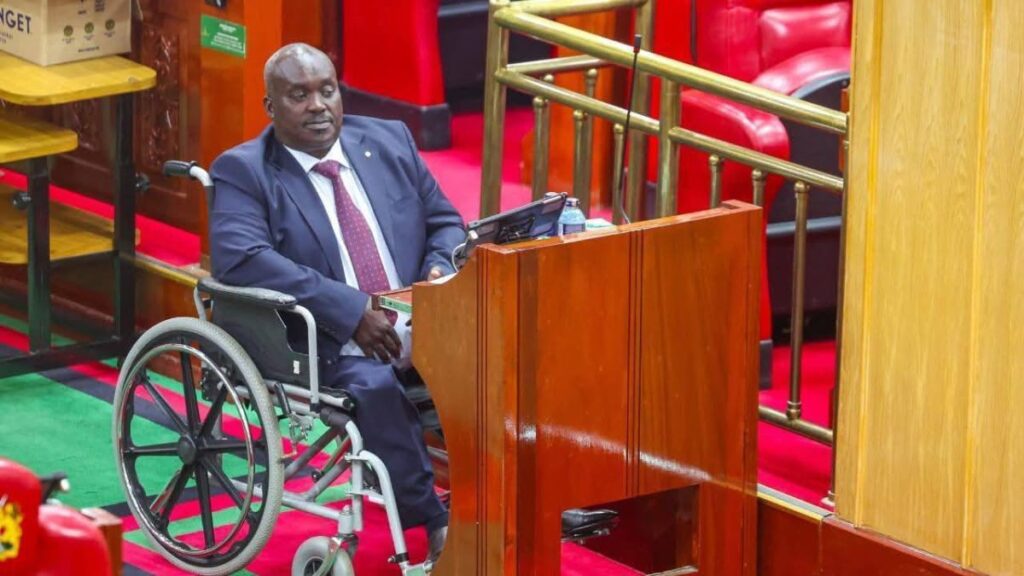The High Court has declined to hear a petition challenging the nomination of Harold Kimuge Kipchumba to the National Assembly, directing instead that the matter be referred to an election court for determination.
Justice Lawrence Mugambi ruled that disputes over elections or nominations must be handled by an election court as provided for under Article 87 of the Constitution and the Elections Act. He instructed the Constitutional and Human Rights Division Deputy Registrar to forward the file to the Chief Justice for gazettement of a judge to preside over the matter.
The judge emphasized that under the Elections (Parliamentary Election) Petition Rules, 2017, it is the Chief Justice who must designate a judge to handle election-related disputes. He further cautioned that non-compliance with the directive would attract legal consequences.
The petition was filed by Mary Ariviza Mwami, a member of the Orange Democratic Movement (ODM), who argued that Kipchumba’s nomination was unconstitutional. According to Mwami, it is unlawful for two men to represent persons with disabilities in the National Assembly while women have no representation in that category. She pointed out that Kipchumba and Jackson Kosgei, who is nominated under the United Democratic Alliance (UDA), both hail from the same region, a move she said undermines the principles of regional balance, ethnic diversity, and gender inclusivity.
Mwami insisted that she was entitled to the nomination following the resignation of John Mbadi, who vacated his seat after joining the Cabinet. She noted that although Kipchumba was ranked fourth on the ODM party list and she was fifth, the principles of gender equity should have placed her ahead, given that another man, Kosgei, already represents persons with disabilities in Parliament.
Her argument centers on the two-thirds gender rule enshrined in the Constitution, which seeks to prevent overrepresentation of one gender in elective and appointive positions. Mwami contends that her nomination would have provided balance while also promoting inclusivity as envisioned by the law.
The dispute highlights the ongoing tension between strict adherence to party lists and the constitutional imperatives of gender equity and diversity. The election court, once gazetted by the Chief Justice, will now be tasked with determining whether Kipchumba’s nomination stands or if Mwami’s claims warrant a reversal of the decision.

